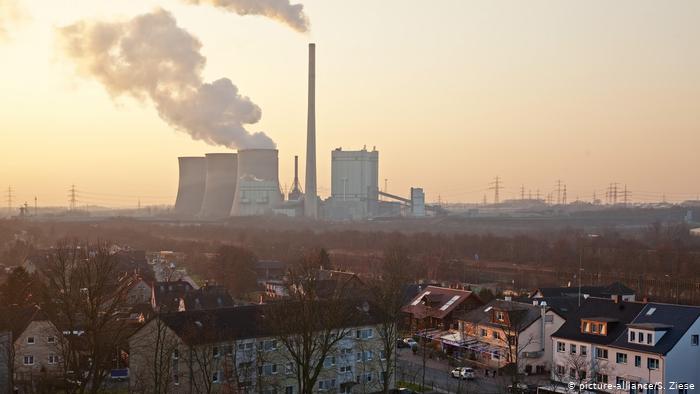EurActiv (13 December 2019)
The European Council handed over negotiation duties for the next EU long-term budget to its president, Charles Michel, during the first round of the December summit on Thursday (12 December).
“It will be my responsibility, in close collaboration with the Commission, to try to find a compromise,” Michel announced during a press conference.
Belgium’s former prime minister told EU leaders that he will start bilateral contacts in January and vowed to intensify technical and political work so as to reach a deal as soon as possible.
“I am not going to commit myself to a timeframe at this stage but when we think we have enough progress, we will enter a final stage of negotiation,” he explained. The idea of a summit in February was floated at the meeting but it is not certain yet.
Michel argued that negotiations on the Multiannual Financial Framework (MFF) are “extremely complex” and will be “the most difficult one ever in EU history because of the Brexit gap”.
According to the European Commission’s assessment, the ‘Brexit gap’ accounts for €13 billion per year. Michel warned this would “necessarily mean” that certain member states would have to contribute more and some would have to receive less.
Countries like Germany, the Netherlands, Denmark, Sweden or Austria argue that as a member state leaves the bloc, the budget should be kept at 1% GNI, not increase. Others, however, demand a more ambitious budget for a bolder Europe.
Michel said he would focus the negotiation on the size of the blueprint, the possible conditionality to respect of rule of law, the balance between traditional and new policies and the possibility of own resources to be introduced.
Commission president Ursula von der Leyen said the EU’s budget should reflect both the political priorities and the strategic agenda of the leader. “We need a quick agreement between the member states because time is pressing,” she added.
EU faces budget deadlock as national positions drift further away
The Commission’s proposal for the EU’s new long-term budget has been caught in the crossfire as net contributors criticise the idea of having to pay more while a number of southern and eastern member states have joined forces to oppose planned cuts in traditional policies.
The Green deal
Leaders did not discuss the content of the EU budget on Thursday at all. The first day of the summit was overwhelmed by the climate discussion that ended up without an agreement, as Poland refused to sign up for the climate neutrality by 2050.
However, the negotiation on the Multiannual Financial Framework (MFF) could be instrumental in bringing Warsaw on board in June.
Poland said it cannot commit to the climate goal just yet. Prime Minister Mateusz Morawiecki defended that the cost of the transition will be higher for his country than others.
When addressing the press after the meeting, Morawiecki praised the creation of the Just Transition Fund, the details of which the Commission has not shared yet. “A fair share of this fund will be allocated to Poland for a fair transformation,” the Polish prime minister said.
Von der Leyen said she will present the financial instruments of her Green Deal in January, including the Just Transition Fund and the European Investment Fund and advised Poland to look at the details of these initiatives.
“But of course, it goes in parallel to the development of the MFF,” von der Leyen explained. “Clearly a significant part of the future budget will have to be earmarked to climate agenda,” Michel told the press, “a minimum of 25% is the proposal.”
All eyes on Michel
As three EU Council presidencies failed to reach an agreement on a Council position regarding the MFF, so all eyes will be now on Michel who stressed the importance of searching for a compromise on the EU blueprint “in close cooperation with the European Parliament.”
EU lawmakers are indeed putting their trust in him. “Charles Michel’s commitment is very positive, meaning, swinging to action to find a deal,” Margarida Marques, Parliament’s co-rapporteur on the MFF said.
As he speaks about “innovative proposals,” Marques added, “we count on the imagination of the negotiators to achieve progress.”
As European Council president Charles Michel takes over the negotiations on the EU’s long-term budget, the Parliament hopes this will give a new impetus to the slow-moving talks, lawmakers in charge told a press briefing on Wednesday (11 December).
[Edited by Sam Morgan]
No comments yet.
- UKRAINIAN PRESIDENT VOLODYMYR ZELENSKY TO VISIT AZERBAIJAN The Caucasus and Turkish-Armenian Relations 13.12.2019
- IRAQ'S SADR THREATENS TO WITHDRAW SUPPORTERS FROM TAHRIR AFTER TEENAGER LYNCHED Iraq 13.12.2019
- GERMANY TELLS US TO ‘MIND ITS OWN BUSINESS’ OVER NORD STREAM 2 Europe - EU 13.12.2019
-
 EU LEADERS AGREE TO 2050 CARBON NEUTRALITY DEAL WITHOUT POLAND
Europe - EU
13.12.2019
EU LEADERS AGREE TO 2050 CARBON NEUTRALITY DEAL WITHOUT POLAND
Europe - EU
13.12.2019
-
 CHINA TO HOST TRILATERAL SUMMIT WITH JAPAN, SOUTH KOREA
Asia - Pacific
13.12.2019
CHINA TO HOST TRILATERAL SUMMIT WITH JAPAN, SOUTH KOREA
Asia - Pacific
13.12.2019
-
25.01.2016
THE ARMENIAN QUESTION - BASIC KNOWLEDGE AND DOCUMENTATION -
12.06.2024
THE TRUTH WILL OUT -
27.03.2023
RADİKAL ERMENİ UNSURLARCA GERÇEKLEŞTİRİLEN MEZALİMLER VE VANDALİZM -
17.03.2023
PATRIOTISM PERVERTED -
23.02.2023
MEN ARE LIKE THAT -
03.02.2023
BAKÜ-TİFLİS-CEYHAN BORU HATTININ YAŞANAN TARİHİ -
16.12.2022
INTERNATIONAL SCHOLARS ON THE EVENTS OF 1915 -
07.12.2022
FAKE PHOTOS AND THE ARMENIAN PROPAGANDA -
07.12.2022
ERMENİ PROPAGANDASI VE SAHTE RESİMLER -
01.01.2022
A Letter From Japan - Strategically Mum: The Silence of the Armenians -
01.01.2022
Japonya'dan Bir Mektup - Stratejik Suskunluk: Ermenilerin Sessizliği -
03.06.2020
Anastas Mikoyan: Confessions of an Armenian Bolshevik -
08.04.2020
Sovyet Sonrası Ukrayna’da Devlet, Toplum ve Siyaset - Değişen Dinamikler, Dönüşen Kimlikler -
12.06.2018
Ermeni Sorunuyla İlgili İngiliz Belgeleri (1912-1923) - British Documents on Armenian Question (1912-1923) -
02.12.2016
Turkish-Russian Academics: A Historical Study on the Caucasus -
01.07.2016
Gürcistan'daki Müslüman Topluluklar: Azınlık Hakları, Kimlik, Siyaset -
10.03.2016
Armenian Diaspora: Diaspora, State and the Imagination of the Republic of Armenia -
24.01.2016
ERMENİ SORUNU - TEMEL BİLGİ VE BELGELER (2. BASKI)
-
AVİM Conference Hall 24.01.2023
CONFERENCE TITLED “HUNGARY’S PERSPECTIVES ON THE TURKIC WORLD"









